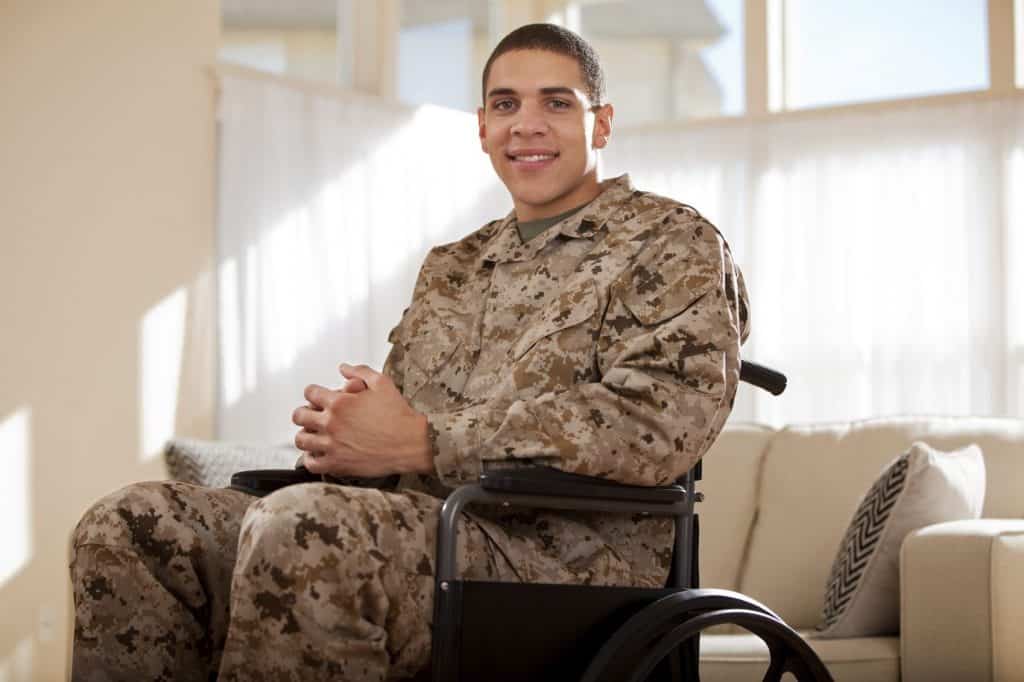As a nation, we have a duty to support and care for our military veterans who have sacrificed so much to protect our freedom and way of life. These brave men and women have put their lives on the line to defend our country, and it is only right that we ensure they receive the benefits and support they have earned. The United States Department of Veterans Affairs (VA) offers a comprehensive array of benefits designed to help veterans and their families; let’s review VA veterans benefits and how to apply.
Overview of VA Veterans Benefits for Military Veterans
The VA provides a wide range of benefits to eligible veterans, aimed at supporting their physical, mental, and financial well-being. These benefits are designed to help veterans transition back to civilian life, pursue education and career goals, and maintain a high quality of life. Some of the key benefits available to veterans include:
- Health care: The VA operates the largest integrated health care system in the United States, providing comprehensive medical services to eligible veterans.
- Education and training: Various programs, such as the Post-9/11 GI Bill and Montgomery GI Bill, offer financial assistance for veterans pursuing higher education or vocational training.
- Disability compensation: Veterans with service-connected disabilities may be eligible for monthly tax-free compensation.
- Home loans: The VA offers guaranteed home loans with favorable terms to help veterans purchase, build, or refinance a home.
- Life insurance: Veterans can access affordable life insurance options through the VA.
- Pension: Low-income wartime veterans may be eligible for a tax-free monetary benefit called a pension.
- Burial benefits: The VA provides burial benefits to help cover the costs associated with a veteran’s funeral and burial expenses.
Eligibility for these benefits depends on several factors, including length of service, type of discharge, and the presence of service-connected disabilities.
VA Health Benefits
One of the most important benefits available to veterans is health care. The VA healthcare system is designed to meet the unique needs of veterans, providing a wide range of medical services, including preventive care, primary care, specialty care, mental health services, and more. Eligible veterans can receive care at any of the over 1,700 VA hospitals, clinics, and other facilities located throughout the country.
Some of the key health services provided by the VA veterans benefits include:
- Primary care: Veterans can access routine check-ups, vaccinations, and preventive health screenings.
- Specialty care: The VA offers a wide range of specialty care services, such as cardiology, oncology, and orthopedics.
- Mental health services: Veterans can receive treatment for mental health conditions, such as post-traumatic stress disorder (PTSD), depression, and substance abuse.
- Prescription medications: The VA provides prescription medications to eligible veterans, often at a lower cost than private health insurance.
- Dental care: Certain veterans, such as those with service-connected dental conditions or former prisoners of war, may be eligible for dental care through the VA.
- Vision care: The VA offers comprehensive vision care services, including eye exams, treatment for eye conditions, and eyeglasses.
- Long-term care: Veterans who require long-term care due to age, disability, or illness can access a range of services, such as nursing home care, assisted living, and home health care.
Education Benefits for Veterans
The VA offers several programs to help veterans and their families pursue higher education and training, recognizing the importance of education in building successful post-military careers. These programs provide financial assistance for tuition, fees, housing, and other education-related expenses.
The most well-known education benefit is the Post-9/11 GI Bill, which provides generous support for veterans who served on active duty after September 10, 2001. Eligible veterans can receive:
- Tuition and fees: The Post-9/11 GI Bill covers full tuition and fees at public colleges and universities, or up to a capped amount at private institutions.
- Monthly housing allowance: Veterans attending school more than half-time can receive a monthly housing allowance based on the cost of living in the area where their school is located.
- Books and supplies stipend: The bill provides an annual stipend to help cover the cost of textbooks and other course materials.
VA Disability Benefits
Veterans who have a service-connected disability may be eligible for disability compensation, a tax-free monetary benefit paid to veterans with disabilities that are the result of a disease or injury incurred or aggravated during active military service. The amount of monthly compensation depends on the severity of the disability, rated on a scale from 0% to 100% in 10% increments.
To be eligible for disability compensation, veterans must have:
Served on active duty, active duty for training, or inactive duty training; and
Received a disability rating for their service-connected condition from the VA.
The VA also offers additional benefits for veterans with certain severe disabilities, such as:
- Special Monthly Compensation (SMC): This additional tax-free benefit is designed to provide additional compensation for veterans with specific disabilities, such as the loss of a limb or the need for aid and attendance.
- Specially Adapted Housing (SAH) Grants: These grants help veterans with certain service-connected disabilities adapt or purchase a home to accommodate their disability.
- Automobile Allowance: Veterans with certain service-connected disabilities may be eligible for a one-time payment to help with the purchase of an automobile equipped to accommodate their disability.
Possible VA Benefits for Family Members
In some cases, family members may also be eligible for certain VA veterans benefits, recognizing the sacrifices and challenges that military families face. These benefits can provide crucial support to spouses, children, and parents of veterans.
Some of the key benefits available to family members include:
- Dependency and Indemnity Compensation (DIC): This is a tax-free monetary benefit paid to eligible survivors of military service members who died in the line of duty or veterans whose death resulted from a service-connected injury or disease.
- Survivors’ and Dependents’ Educational Assistance (DEA): This program offers education and training opportunities to eligible dependents of veterans who are permanently and totally disabled due to a service-connected disability, or who died while on active duty or as a result of a service-connected disability.
- Champva (Civilian Health and Medical Program of the Department of Veterans Affairs): This program provides health care benefits to eligible dependents of veterans who are permanently and totally disabled due to a service-connected disability, or who died while on active duty or as a result of a service-connected disability.
- Survivors Pension: This tax-free monetary benefit is available to low-income, unremarried surviving spouses and unmarried children of deceased wartime veterans.
Contact Benefits Claim to Learn More About Which VA Veterans Benefits are Available to You
Figuring out how to apply for VA benefits can be challenging, but help is available. If you are a veteran or a family member of a veteran, it’s crucial to explore the benefits available to you and understand your eligibility. Contact Benefits Claim to learn more about which VA Veterans benefits are available to you.


